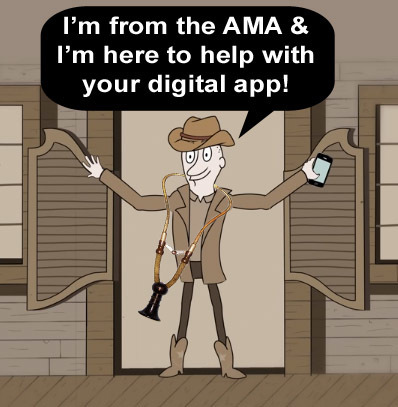The American Medical Association has signaled its support for mHealth with new policies designed to support physicians adopting mobile health apps and devices.
While approving an eight-part set of mHealth principles at its mid-year meeting this past week, the AMA also called for better regulation of apps – especially those which don’t fall under federal review – and told doctors to seek a legal opinion if an app’s security is questionable.
“While some mobile apps and devices are subject to FDA regulation, others are not, and do not undergo rigorous evaluation before deployment for general use, which raises quality and patient safety concerns,” the AMA’s Council on Medical Service said in a report adopted at last year’s interim meeting. “Without ensuring that there is strong and sufficient evidence that provides clinical validation to mHealth apps and associated devices, trackers and sensors, physicians will not fully integrate mHealth apps into their practices. More investment is needed in expanding the evidence base necessary to show the accuracy, effectiveness, safety and security of mHealth apps.”
As reported in AMA News, the organization approved a set of principles dictating that mHealth technology should:
- Support the establishment or continuation of a valid patient-physician relationship;
- Have a high-quality clinical evidence base to support its use and ensure mHealth app safety and effectiveness;
- Follow evidence-based practice guidelines, especially those developed and produced by national medical specialty societies and based on systematic reviews, to ensure patient safety, quality of care and positive health outcomes;
- Support care delivery that is patient-centered, promotes care coordination and facilitates team-based communication;
- Support data portability and interoperability to promote care coordination through medical home and accountable care models;
- Abide by state licensure laws and state medical practice laws and requirements in the state in which the patient receives services facilitated by the app;
- Require that physicians and other health professionals delivering services through the app be licensed in the state where the patient receives services or be providing these services as otherwise authorized by that state’s medical board; and
- Ensure that the delivery of any services via the app be consistent with state scope of practice laws.
Via Pharma Guy



 Your new post is loading...
Your new post is loading...
















Related articles: